Girls wore pants. Prayer was optional. Was this modern Orthodox school too open-minded for its own good?
The Idea School attracted queer students and others who appreciated its belief that students should pilot their own religious journeys
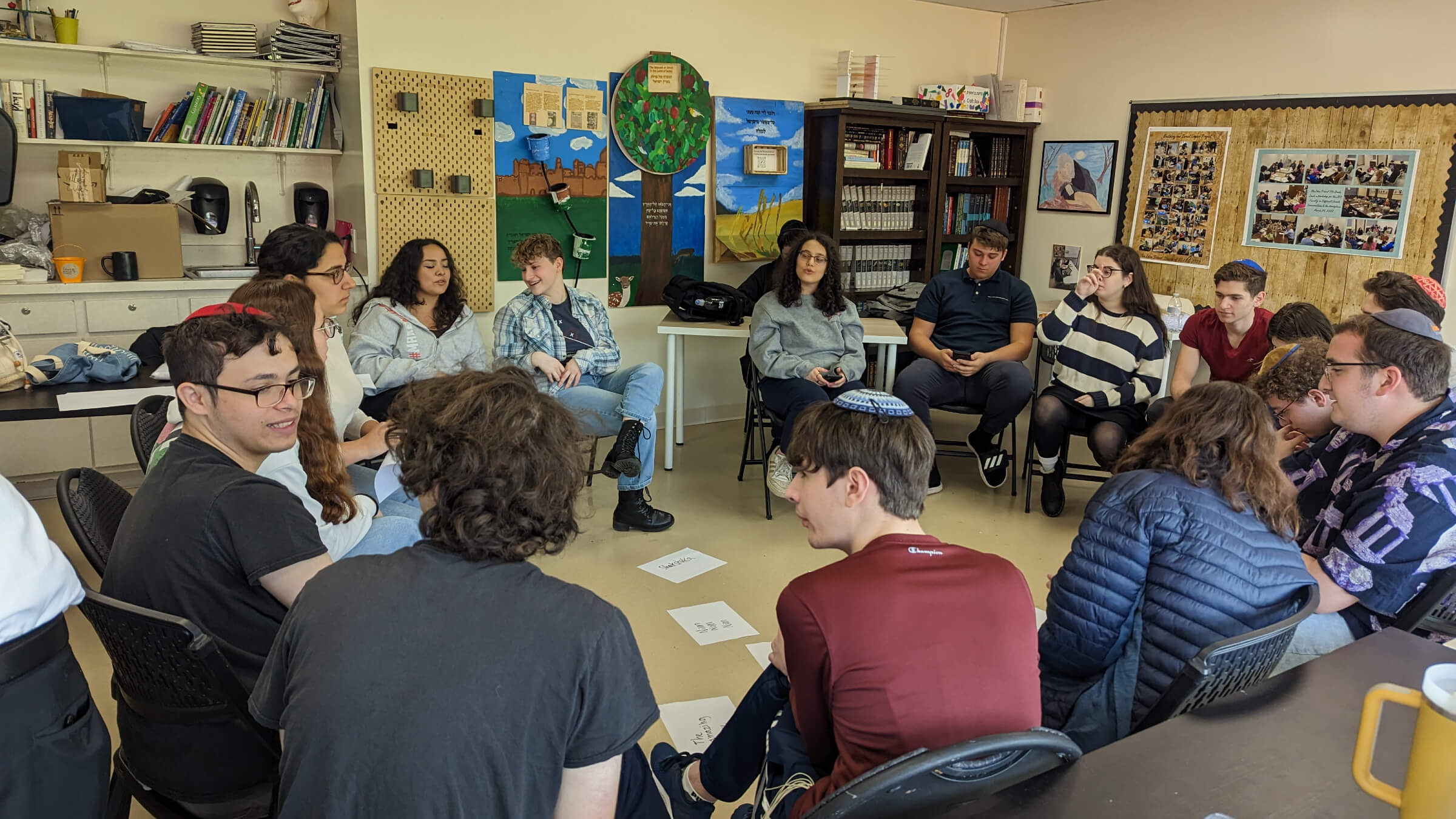
Idea School seniors meet with two visiting teens from Israel at the school this spring during Hebrew class. Photo by Mimi Farb
Shortly after The Idea School opened in the fall of 2017, students lobbied to change the dress code. Some of the boys didn’t want to wear the collared shirts required by most modern Orthodox schools. Some of the girls wanted to wear pants instead of skirts.
Founders of the coed high school, which made its home in a wing of the JCC in Tenafly, New Jersey, knew that girls in pants would be particularly controversial in the communities the school would serve. They feared putting off parents otherwise attracted to its promise: to provide a creative, hands-on modern Orthodox education that integrates Jewish and secular studies and draws out students’ individual talents and interests.
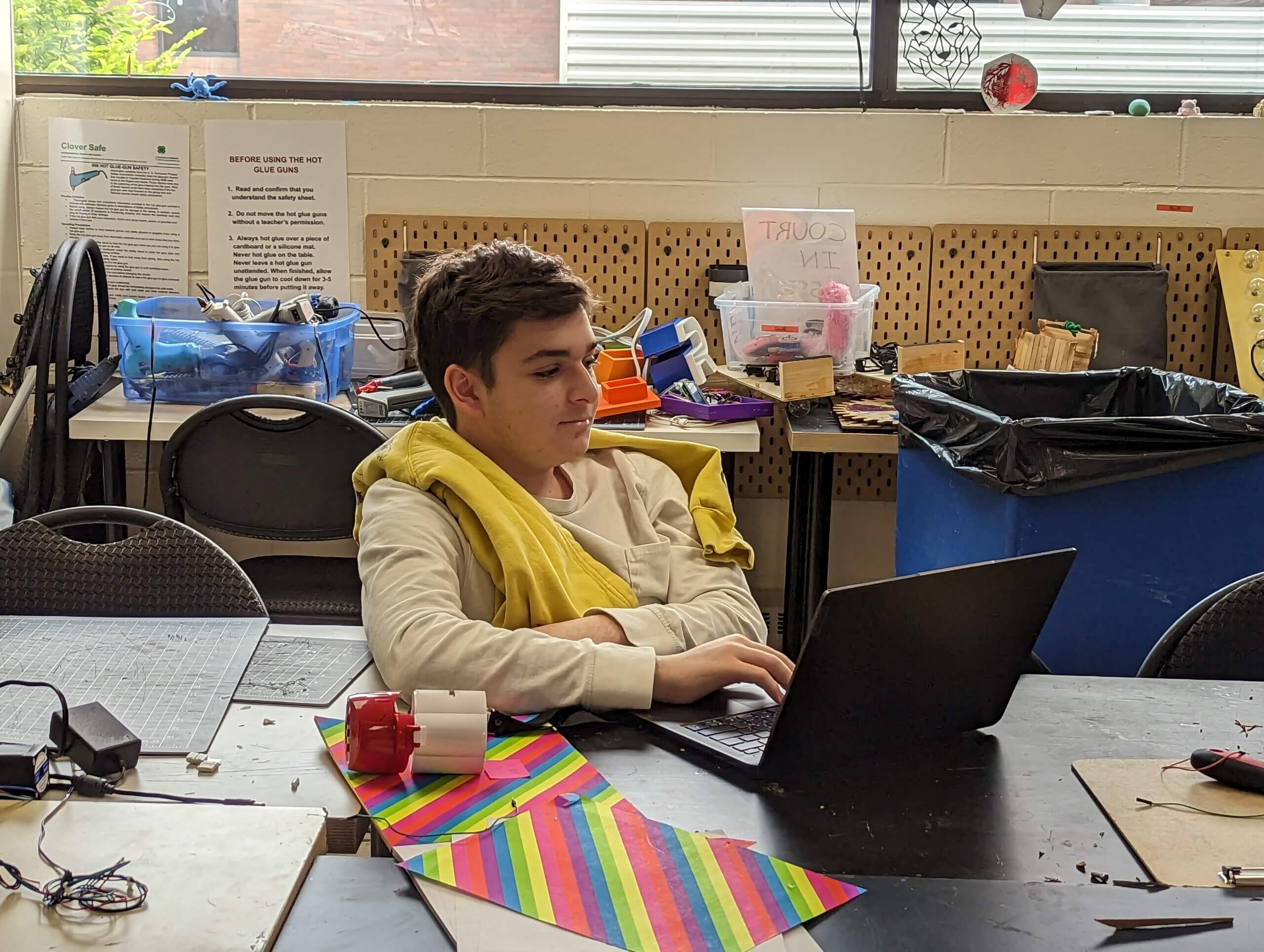
But the school also sought to prepare students to make their own choices in and outside the classroom. So administrators backed the alternative dress code devised by its first class — 13 ninth-graders.
The Idea School would break other tenets of modern Orthodox education. Daily prayer would not be required. Students could take part in meditations and group discussions instead. In interviews, more than a dozen students and educators described the school as a haven for kids who felt hemmed in by more traditional Orthodox schools.
But none of them will return to The Idea School. It shuttered in June. Too few students had enrolled to sustain it, said Tikvah Wiener, its founder and former head of school.
The community, according to many of its boosters, may not have been ready for it.
Giving students choices in their religious expression “is scary for many Orthodox families,” said Rabbi Tavi Koslowe, former head of the school’s Judaics study department. “The kind of school experience we are offering is a different one than what parents would have experienced and for many in our community that alone gives them pause.”
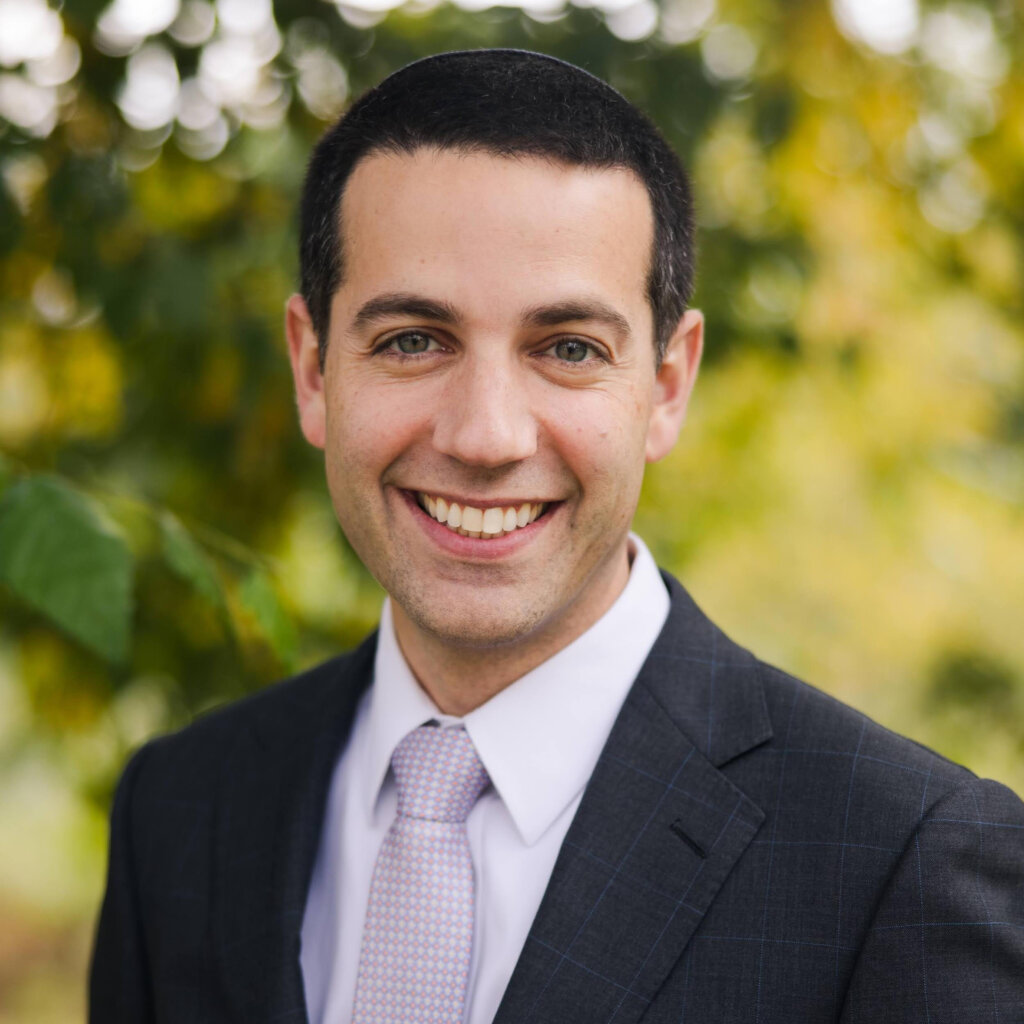
Among those who felt drawn to the school were a number of openly queer students. Its embrace of them may also have contributed to its demise.
“The word of mouth was that The Idea School is a queer school with questionable Orthodoxy,” said Nadiv Langer, 18, a queer student who graduated from The Idea School in June and will be spending a year in Israel before pursuing a nursing degree at the University of Hartford.
A niche to fill?
Modern Orthodoxy represents less than 5% of Jews in the U.S. according to a dated — but one of the few — population estimates for the group. Its adherents observe Jewish law more strictly than most American Jews and are much more likely to send their kids to private Jewish day schools.
But they tend to integrate themselves into the modern world far more than Hasidic and other Orthodox communities, some of which have come under scrutiny for running yeshivas which provide little secular education. Modern Orthodox schools, by contrast, generally enjoy strong reputations in both Jewish and secular studies.
Enrollment in Orthodox high schools in Northern New Jersey had grown by more than 20% in the decade before The Idea School opened its doors, according to Jason Shames, CEO of the Jewish Federation of Northern New Jersey.
The Federation, which represents a broader and generally less observant swath of American Jews, had been impressed with The Idea School’s mission and commitment to Project Based Learning, a method gaining credence in educational circles. It loaned the school $215,000 in 2018.
But in the end, The Idea School couldn’t compete with more established and traditional schools that better aligned with most Orthodox parents’ values and expectations, Shames said.
“It became known for catering to kids who didn’t fit into the mainstream, especially the LGBTQ community,” he said. “The Idea School broke in with such an innovative model that the community didn’t quite understand it.”
Other factors, besides its unconventional approach, worked against the school, administrators said. It was difficult to spread the word about it because of COVID-19 closures. And some parents worried that students in the new school — unknown to most college admissions officers — wouldn’t fare well after they graduated.
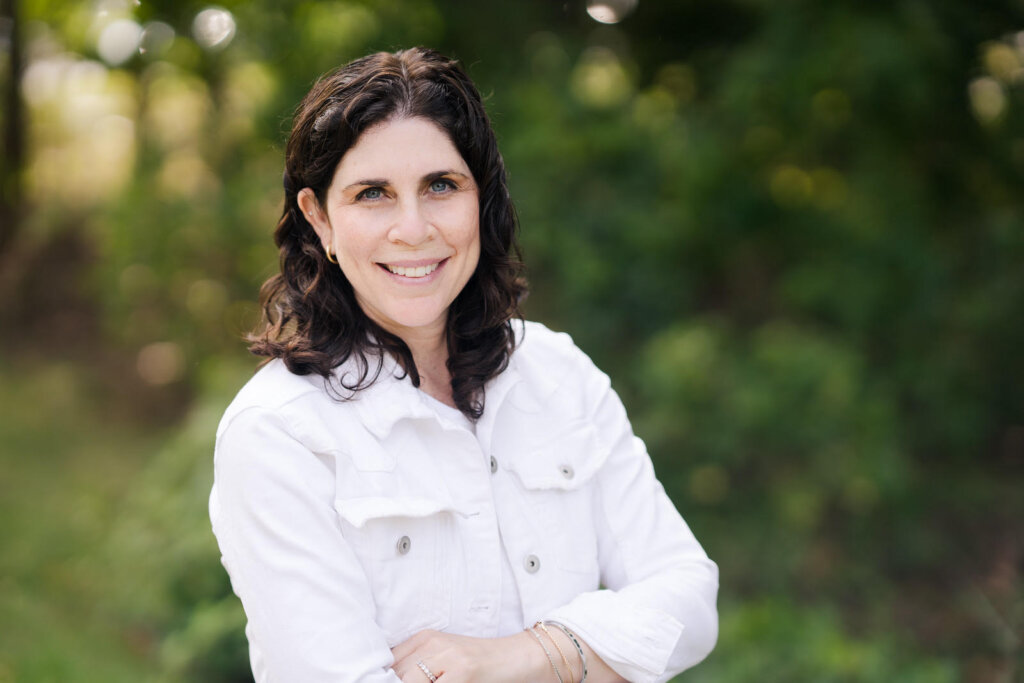
Still, Wiener, an Orthodox educator with more than 20 years experience in Jewish day schools, saw a need for The Idea School, and predicted that many Orthodox families would flock to it.
In recent years, she observed an increasing number of students struggling to learn and requesting accommodations, like more time to take tests. It made her think, she said: “Maybe the problem isn’t the students. Maybe it’s the system.”
So Wiener began reading about alternatives to traditional education online, and thought she found a better system in Project Based Learning, an approach that allows students time to explore complex real-world questions through elaborate projects of their own design.
She started an extracurricular Project Based Learning club for the high school students at the modern Orthodox Frisch School, also in northern New Jersey, where she taught English. In the three years that she led the group, the kids created an art exhibit, started a nonprofit, and put on a fashion show — a “multimedia artistic event.”
“I saw how the students came alive when they were engaged with their passions,” Wiener said.
The Magen David Yeshiva of Brooklyn in 2014 hired her to integrate elements of the model into the school’s curriculum. She also visited The New Technology High School, a secular school based entirely on Project Based Learning, in Napa, California.
Impressed, Wiener sought to create something similar in the Jewish community.
A ‘queer’ school?
She brought her idea for a new school to Rabbi Koslowe, who, like Wiener, had been a teacher and administrator in New York-area Orthodox Jewish day schools. Right before coming to The Idea School, the rabbi, who had been ordained at Yeshiva University, the flagship higher education institution of modern Orthodoxy, had headed the lower school at Manhattan’s prestigious Ramaz school.
“There’s something very Jewish about it, the style of active participation in the learning, the importance of connecting to each student and including their voice,” Koslowe said of Project Based Learning.
Together, they founded The Idea School.
They didn’t set out to create a safe space specifically for LGBTQ+ teenagers. But Wiener said she sees behind Jewish law “the deep desire to understand what is really best for society.” For her that means welcoming each student as they are.
Modern Orthodoxy has begun to grapple with queerness — though far more slowly than other streams of Judaism, which have accepted gay clergy, sanctioned same-sex marriage and celebrated Pride Month in their synagogues.
In the past decade, Orthodox LGBTQ+ Jews and their supporters have founded and expanded groups like Eshel and JQY, which advocate for equality for queer adults and youth in the Orthodox world. And even as Yeshiva University appeals a court order to recognize The Pride Alliance, its established LGBTQ+ group, it publicly stated that it welcomes queer students.
But Felicia Stendig, 19, who graduated from The Idea School in 2022 and was one of its original 13 students, said the larger Orthodox community did not understand the school’s embrace of its queer students. Stendig, who described herself as one of the more traditionally observant students in the school, said she was approached regularly by friends and neighbors who found The Idea School’s reputation shocking.
“Being a Jewish school and being accepting and welcoming of the LGBTQ+ community was very different and very scary for a lot of people,” because it introduced questions about traditional gender roles that many Orthodox families would rather avoid, she said.
‘Not Orthodox enough’
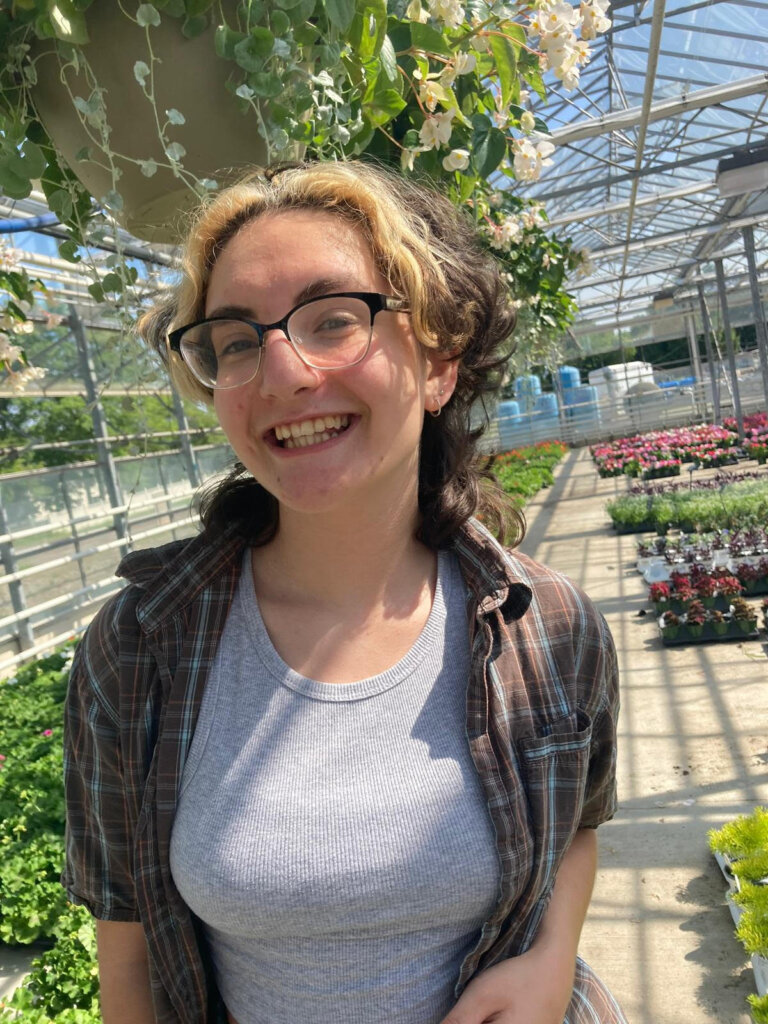
Kaila Mack, 16, who attended The Idea School for 11th grade, liked its challenging Judaic studies classes and Project Based Learning, which the school used to teach everything from chemistry to American history to Talmud.
But her mother and father enrolled her with some qualms. “My parents were like ‘this school is not Orthodox enough for us,’” said Mack, who identifies as queer.
Ultimately, their daughter prevailed. “A big factor is that they realized that I would be happier there,” she said. The Idea School’s closure was “just really sad for everyone.”
For the school year that just began, most Idea School students now attend other modern Orthodox schools in the area, with a few opting to transfer to public high school, according to Tamara Levin, executive director and director of admissions. Mack will be pursuing her GED instead of enrolling elsewhere for her senior year.
“The Idea School had something special that wasn’t going to be replicated at other schools,” she said.
Judaism in space
For students and teachers, that specialness was evident in the end-of-semester showcase of student work in June.
After browsing through art and science projects, parents sat down for a post-apocalyptic performance. The year, students told them, was 2100. Along with the rest of humanity, the Jewish community had fled climate devastation and was now living in space colonies. In one classroom, parents played guests at an outer space bat mitzvah where a debate about the Talmud’s stance on bionic arms had broken out. In another room, parents heard arguments about how Jewish communities should fulfill commandments tied to the cycles of the Earth (like the lighting of Shabbat candles), given that they no longer lived there.
“The project asked them to consider, ‘how does Judaism face the world?” said Zachary Rothblatt, the Judaics teacher who guided the students in writing and presenting the performance, and who is now a teacher and curriculum creator at Kohelet Yeshiva, a modern Orthodox school near Philadelphia.
The showcase delighted many parents “When you widen the ways for people to succeed, they’ll surprise you with what they can do,” Wiener said.
Still, The Idea School struggled to recruit enough students. Enrollment peaked at 70 in 2021-2022 and dropped to 60 for the most recent school year, according to Wiener. Lowering tuition from $23,000 in the school’s first year to $18,000 in its second — less than tuition for other Orthodox day schools in the area — didn’t make enough of a difference.
Wiener said the decision to close The Idea School was not the end of the road for its philosophy. She still runs The Idea Institute, a nonprofit she founded alongside the school to lead trainings for teachers in Jewish schools on Project Based Learning.
“We’d like to bring everything that we learned from running The Idea School and continue to bring it to the field,” Wiener said.
The dress code dilemma
Stendig, the student who graduated from The Idea School in 2022, remembers clearly the debate over the dress code. Though she decided that she would continue to wear skirts herself, she agreed with her classmates that they should be optional for girls.
But she also worried about the impact the change — allowing girls to wear pants — would have on the community’s perception of the school. “We were a new school,” Stendig said. “We were already looked at as an experiment. Did we really want to show that in our appearance?”
Administrators looking back point to this conversation around the dress code as a defining moment for the school, one that Levin, its executive and admissions director, said she believes contributed to its recruiting problems.
“I’d be lying if I said I didn’t,” she said. “Was it a mistake? I don’t know.”
The school also needed more time to prove itself, more time to show the community the poise and confidence of its graduates, said Levin.
“Our kids speak so strongly about the model,” she said. “It’s a shame because the more and more kids we could have educated this way, the more the world would have had the blessing of these types of learners.”
For students like Mack, the school offered her the learning environment she craved. Before she came to The Idea School, she said she had been asked, after her freshman year, not to return to the all-girls Bruriah High School For Girls, an Orthodox school in Elizabeth, New Jersey. She said she and other queer students had felt targeted by the administration.
When they asked her to leave, “It was as explicit as it could be without outright saying ‘we don’t want gay students in our school’,” she said.
Bruriah administrators did not reply to questions about Mack’s experience.
Mack said she misses The Idea School, and that its brief existence raised questions that persist, particularly with regard to the LGBTQ+ community in modern Orthodoxy.
“Some Orthodox communities are acknowledging that queer people exist,” she said. “That there are queer people in our schools and shuls, they’re our friends, they’re our neighbors. But I think a lot of the Orthodox community has chosen instead to move in the other direction.”
‘Free reign’
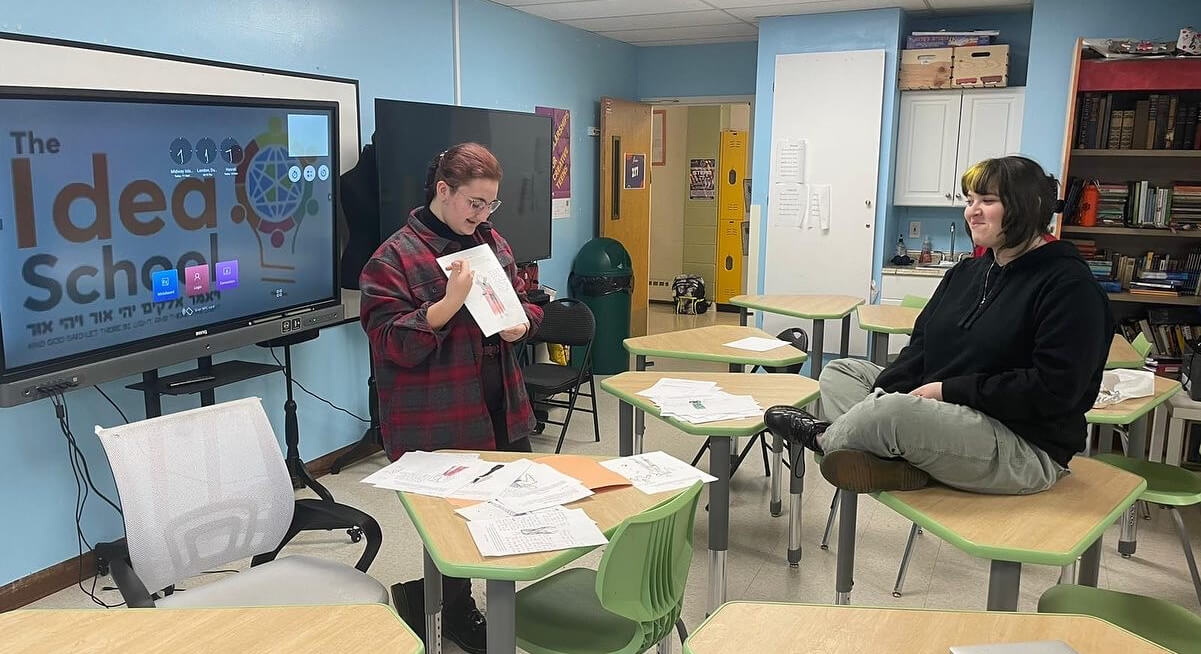
Before attending The Idea School for freshman and sophomore year, 15-year-old Faelyn Oshry, who uses they/them pronouns, spent nine years in other Orthodox day schools, where they said the Judaics curriculum was repetitious and teachers avoided opportunities for honest discussion.
“They really liked to sugarcoat and limit your ability to question,” Oshry said. “You know, ‘God works in mysterious ways’ sort of thing. I felt like I couldn’t properly express what I wanted to.”
At The Idea School, Oshry felt different: “We were given free reign over how we interpret things and how we actually think.” This year, Oshry is attending SAR Academy, a modern Orthodox high school in Riverdale, in the Bronx.
Kaslowe, who will continue as co-director of The Idea Institute with Wiener while in his new position of high school dean at the Leffell School in Hartsdale, New York, said Jewish educators risk alienating students who don’t thrive in traditional Jewish schools.
“A large percent of our students had low or negative expectations about the Jewish experience when they came to us,” but discovered through their own projects how very relevant it can be, he said.
Jewish educators need to understand, he continued, the necessity of “providing students with the opportunity to make decisions for themselves and to be involved in their religious journeys.”




















